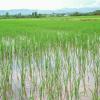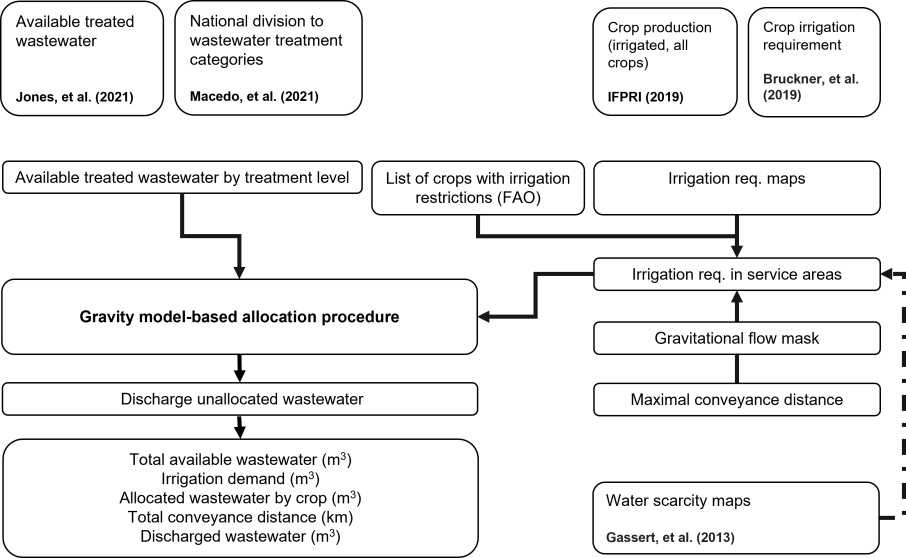
This project estimates the current global treated wastewater irrigation potential and the capacity of wastewater reclamation to function as a climate adaptation measure. GATWIP explores different technological scenarios and technical limitations for treated wastewater irrigation and applies a novel spatially explicit modeling approach to recently published global datasets. GATWIP is funded by a IIASA’s Innovative and Bridging Grant (IBGF).
Treated Waste Water for Irrigation
Wastewater has been increasingly considered an untapped resource rather than a waste. It can be used for water supply, aquifer recharge, energy generation, and fertilizer production, contributing concurrently to achieving multiple Sustainable Development Goals. Recent estimates suggest that treated wastewater irrigates six million hectares (Mha) of cropland worldwide, with a global potential for irrigating 31-42 Mha. Nevertheless, realizing this potential requires large-scale investments in wastewater treatment plants and infrastructure for water conveyance, storage, and irrigation.
GATWIP aims to assess the global treated wastewater irrigation potential, by applying a spatially explicit allocation approach to recently published global data on the spatial distribution of treated wastewater and irrigation requirements. We assess irrigation potential under four different technological scenarios, representing different stages of the development of wastewater treatment infrastructure, by changing the volume and quality of the available treated wastewater.
Methods
Water allocation to crops is limited by the topography (gravitational flows), the conveyance distance, and water quality and crop irrigation restrictions. The spatially explicit outputs include treated wastewater irrigation, treated wastewater discharge, and the total conveyance distance. The allocation procedure is also conditioned by severe water stress, so we can estimate the potential effect of treated wastewater irrigation in regions having less alternatives. We further explore the potential use of treated wastewater for irrigation as a climate change adaptation measure or drought risk management.
GATWIP is expected to identify geographic areas that may benefit from developing wastewater reclamation projects, point out the main research gaps in this field, and will support large-scale hydrological modeling to include wastewater reclamation.
Project Team
Funding
The project is funded by IIASA's Innovation and Bridging Grants Fund (IBGF)




